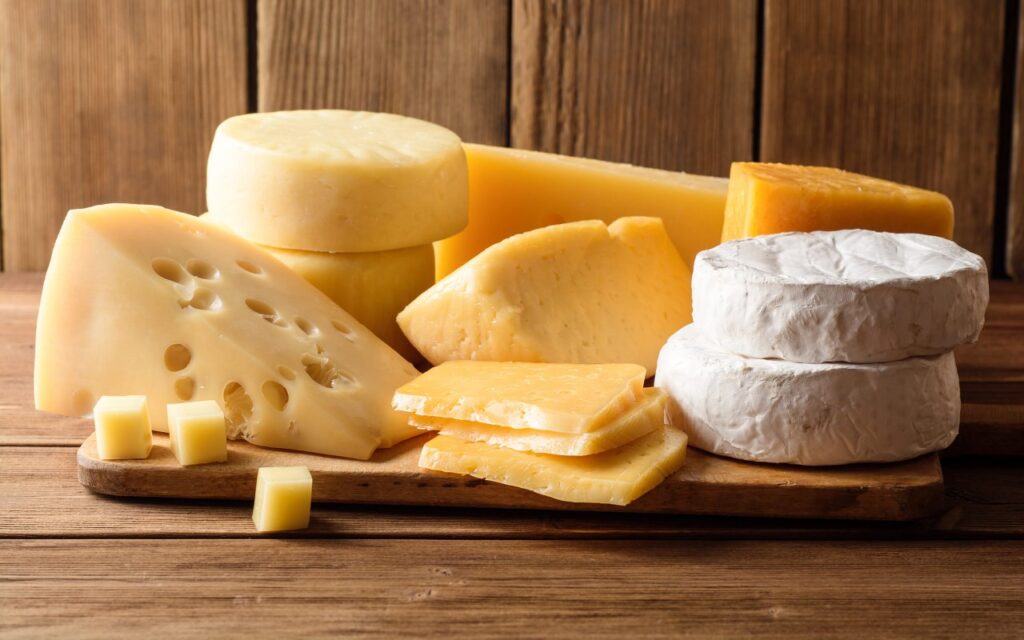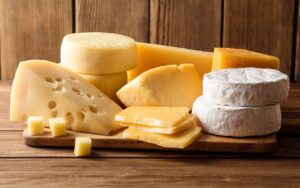Million Benefits Of Cheese and Online Cheesemaking Course Jakarta

Why cheese is so good for health will be discussed in this article. Why do many want to know information on online cheesemaking course Jakarta, Surabaya and its surroundings? Because it will be more practical if you can produce your own products in your home kitchen.
Is cheese good or bad for you?
Cheese is a good source of calcium and protein. Cheese is also high in saturated fat and sodium so should we eat more cheese or less?
Cheese has grown in popularity in the United States in the last 50 years. The range of available cheeses and the number of specialist cheese makers in the United States have also grown in recent years. Some people avoid dairy cheese because of a milk allergy or lactose intolerance, because they are on a weight loss diet, or as part of a vegan diet.
Cheese offers a number of health benefits, some of which are surprising. Whether it’s a healthy choice or not depends on the individual and the type and amount of cheese consumed.
Cheese Facts And Online Cheesemaking Course Jakarta
Quick facts about cheese:
– There are thousands of types of cheese. “Cheese flavored” foods are not considered one of them.
– Natural, low-fat, low-sodium cheese can be a healthy addition to most diets.
– Anyone with a lactose allergy should not eat any type of cheese, but some types may be suitable for those with lactose intolerance.
There are many types of cheese, each with a different taste and composition. Cheese is a standard accompaniment to popular foods such as burgers, pizza, Mexican dishes, salads and sandwiches.
Cheese can be a snack or an appetizer. It can be added to sauces, soups, pastries and many other dishes. There are thousands of types of cheese, ranging in taste from mild to ripe, and in compositions from low to high fat. It can be made from the milk of cows, sheep, goats and other animals.
Type
Wholemilk contain 4 to 6 g is saturated fat. Low-fat cheese made with 2 percent milk. Lean cheese made with 0 percent or skim milk. Fresh cheese is cheese that has not been aged, or is ripe. They usually have a higher moisture content, a softer texture, and a milder taste than aged cheeses. Examples include ricotta, cream cheese, cottage cheese, and mascarpone.
Aged or ripe cheeses have a firmer texture and tend to be aged 6 months or more. The longer the aging process, the more concentrated or sharp the taste. Cheddar, Swiss, Parmesan, and Gruyre are examples of aged cheeses.
Processed cheeses such as spread cheeses, American cheeses, “cheese food” and “cheese flavored” products cannot be categorized as cheese, and labels should reflect this. It is a shelf-stable product that contains additives such as flavor enhancers and emulsifiers.
Non-dairy cheeses, such as soy and daiya cheese, are suitable for people who don’t eat dairy products, but are very well processed.
Nutrition
Cheese is a good source of calcium which is a key nutrient for healthy bones and teeth, blood clotting, wound healing and maintaining normal blood pressure. For men and women aged 19 to 50 years, should consume 1,000 mg of calcium a day. Cheddar cheese (1 ounce) provides 20 percent of this daily requirement.
However, cheese can also be high in calories, sodium and saturated fat but this varies greatly depending on the type. One brand of cheddar cream cheese spread (1 ounce, 28 g) contains; 80 calories; 7 g fat, including 5 g saturated fatty acids; 1 gram of carbohydrates; 0 grams of protein; 150 milligrams (mg) of calcium; 750 international units (IU) of vitamin A; 15 mg cholesterol and 380 mg sodium. Cheese-flavored products don’t have the same nutritional value, and these are more likely to be high in sodium.
Health Benefits Of Cheese And Online Cheesemaking Course Jakarta
Health benefits
Dairy products are one of the best food sources that contain calcium and other nutrients. Here are the benefits where cheese can be healthful.
1. Online cheesemaking course jakarta. Bone health
The calcium, protein, magnesium, zinc, and vitamins A, D, and K content of cheese mean it can contribute to healthy bone development in children and adults, as well as the prevention of osteoporosis. Several theories have been proposed that eating dairy products causes higher levels of acid in the body so it can destroy rather than encourage healthy bones. However, scientific evidence does not support this view.
2. Dental health
Cheese can improve dental health. The calcium present in cheese plays an important role in the formation of teethu is a good source of calcium. One study has also shown that eating cheese can increase the pH in dental plaque which provides protection against cavities. Sugar-free milk and yogurt don’t seem to have the same effect.
3. Blood pressure
The calcium contained in cheese can help lower blood pressure based on statistics, which show that people who eat more cheese have lower blood pressure. Low-fat, low-sodium cheeses are highly recommended, and natural low-fat Swiss cheeses are a good match. Other low-fat cheeses include cottage cheese, ricotta cheese, parmesan, feta, and goat cheese, as well as low-fat cream cheese.
Today many cheeses are available in lighter versions, such as cheddar, brie, havarti, and feta. Check the nutritional information because some low-fat cheeses have added sodium and extreme, fat-free cheeses are not recommended as a regular part of the diet, even for those looking to cut calories or fat.
4. Healthy blood vessels
Some cheeses contain high levels of cholesterol and sodium, suggesting that cheese can cause cardiovascular problems. But in 2014, researchers concluded that dairy products could be a good source of the antioxidant glutathione. This antioxidant is very important for brain health, and it is also very important to prevent age-related neurodegeneration.
In a 2016 study, scientists also found that the antioxidant properties of cheese could protect against the negative effects of sodium and that the blood vessels of participants who ate milk cheese functioned better than those of participants who ate pretzels or soy cheese.
5. Gut microbiota and cholesterol
Cheese can help promote healthy gut bacteria and has a positive effect on blood cholesterol levels, according to a small study published in 2015.
6. Healthy weightStudies show that people with a high body mass index (BMI) tend to have low calcium levels. Since cheese is a good source of calcium, it may have benefits for people on a weight loss diet. Thus brief information about the benefits of cheese and information on the best online cheesemaking course Jakarta.






